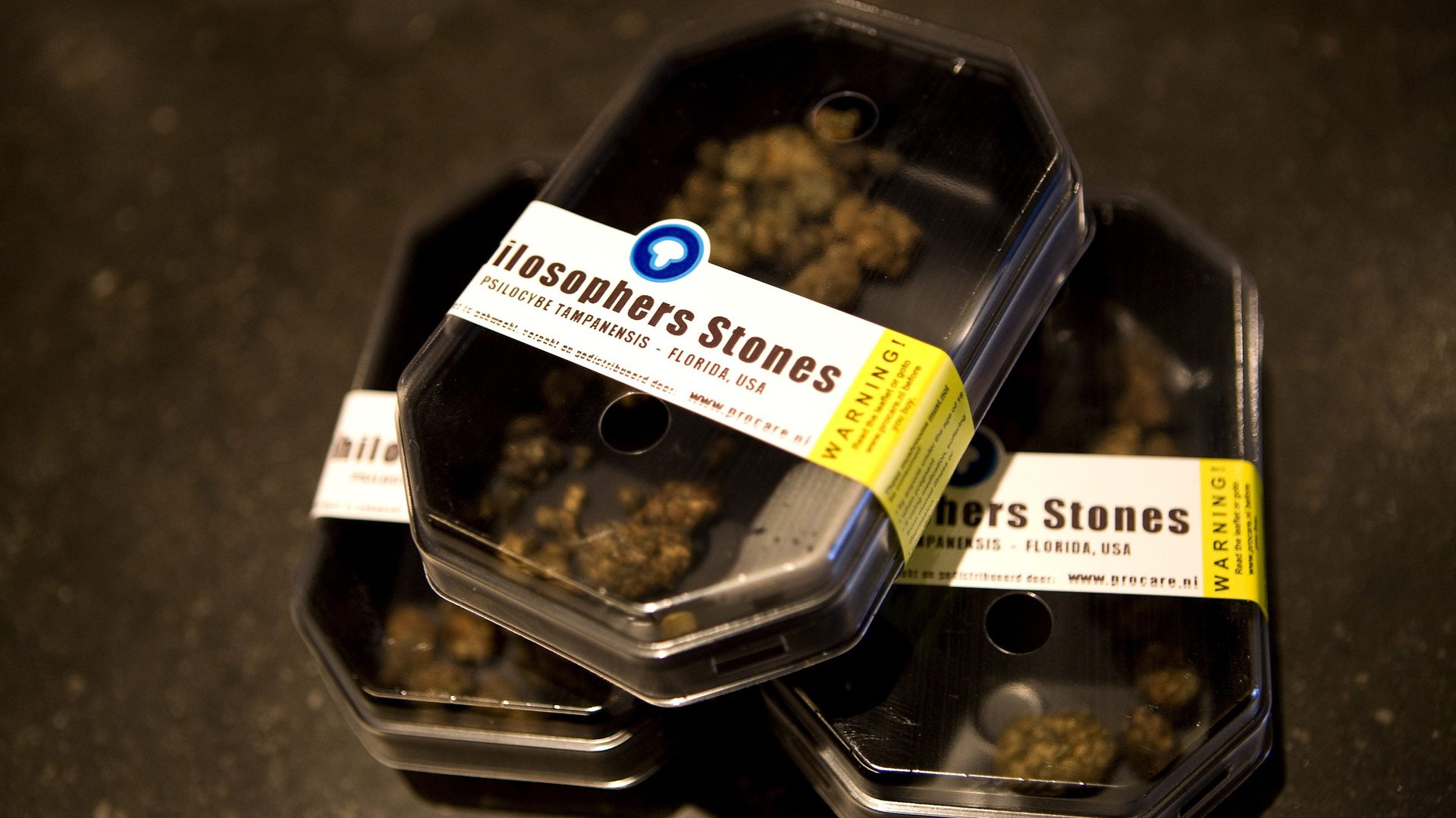What the magic mushroom market in the US could look like
Presidency aside, psychedelics clearly won the US election.


Presidency aside, psychedelics clearly won the US election.
On Nov. 3, the state of Oregon voted to legalize psychedelic mushrooms for therapeutic use, a first for the nation. And residents of Washington DC passed a ballot initiative that would decriminalize magic mushrooms and other psychedelics.
The initiatives show support for loosening drug laws on psychedelics—and sow the seeds for two potentially lucrative psychedelic markets: a recreational one and a medical one.
The faster route to profit, it seems, will be through recreational use enabled by decriminalization statutes like DC’s. If the initiative makes it through city council and eventually Congress, it’d allow DC to join the ranks of Denver, Colorado; Ann Arbor, Michigan; and Oakland and Santa Cruz, California, all of which have downgraded psychedelic drug possession to the lowest priority for law enforcement.
Decriminalizing psychedelics doesn’t create a framework for buying and selling the drugs—that’s still illegal. But instead of criminally charging someone for possession or use, police would at most issue a fine. This means that businesses will likely get more creative about how they go about distributing psychedelics.
When Washington DC decriminalized marijuana, for example, a slew of cookie, tee-shirt, sticker, and even legal counseling businesses popped up. These shops took advantage of the fact that possessing, growing, and giving marijuana remained legal. Sellers can provide their goods and services for a fee, and then, should the paying customer present ID showing that they are at least 21, they may “gift” the recipient various amounts of the marijuana.
It’s likely the same will happen with shrooms and other psychedelics. In Denver, the first city to decriminalize psychedelic mushrooms, the shadow economy has grown using similar tactics, sometimes piggybacking off the networks created by legal marijuana dispensaries.
Denver has also seen businesses express interest in offering psychedelic therapy, though it’s still illegal to encourage or prescribe that use in the city. That’s the promising industry opened up by Oregon’s measure, which will allow people to legally obtain forms of psilocybin, the active ingredient in magic mushrooms, for medicinal purposes. Instead of skirting around the rules, medical merchants in the state will have every interest in being completely transparent, following the model of legalized medical cannabis.
This market, while slower to grow, is relatively well-developed compared to recreational use. Since 2011, several scientists and companies have embarked on their own legal, modern research on psychedelics to examine their potential for medical use. MindMed is the first to go public, while upstart Compass Pathways received a patent for its method of producing psilocybin in January.
Existing companies like Field Trip Ventures in Oregon will likely be more interested in setting up storefronts that provide people with specific doses so they are more prepared for the drug’s effects, or locations that guide customers as they take these drugs.
It’s hard to know what these businesses will look like, but they could be setting Oregon up for an economic boost. Clinical trials of psychedelic therapy are approaching completion, and the US Food and Drug Administration has decided to fast-track psychedelics through its approval process. In the meantime, it’s likely that psychedelics will garner even more public support; the pandemic may have quashed efforts to get the thousands of signatures required to get such initiatives on more ballots.